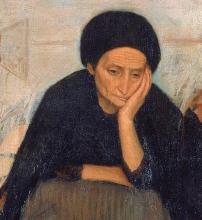New Issue of the Jewish Quarterly Review: Summer 2023
JQR 113.3 is now available, online and in print.
In this issue:
Barry Wimpfheimer shows that the Mishnah stacks legal couplets like building blocks to produce ever-richer conceptual understandings and train the reader to mine it for such meaning.

